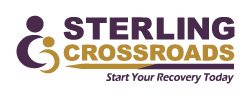For many families in Mount Sterling, Kentucky, prescription medications are a lifeline—an essential tool for managing pain, mental health conditions, or post-surgery recovery. But what happens when a drug meant to heal becomes a source of harm? It’s a question that has become all too real for many communities. How does prescription drug addiction start, and what can we do to stop it before it takes root?
When someone you care about is diagnosed with a substance use disorder related to prescription drugs, it can feel overwhelming. You may wonder how things got to this point, especially if a trusted physician originally prescribed the medication. Understanding how addiction begins is the first step in offering support, compassion, and guidance. For those seeking help, a prescription drug abuse program in Kentucky—like the one provided by Sterling Crossroads in Mount Sterling—can be a life-changing resource. Reach out today to learn more—we’re here for your family!
How do people become addicted to prescription drugs?
It often begins innocently. A patient with a legitimate medical need—chronic back pain, post-surgical discomfort, or anxiety—receives a prescription for opioids, benzodiazepines, or stimulants. These medications are powerful and can be safe and effective when taken exactly as prescribed. But even when used correctly, these substances have the potential to alter brain chemistry, especially over time.
The body can develop a tolerance, meaning the patient needs higher doses to feel the same relief. What begins as careful compliance can shift into something more dangerous. The patient may take their medication more frequently than directed or increase the dosage without their doctor’s consent, thinking it’s harmless. This is one of the earliest signs of a developing addiction.
In many cases, the transition from medical use to misuse is so subtle that even the individual doesn’t realize it’s happening. They may begin to rely on the medication not just for physical relief but for emotional comfort—using it to numb stress, trauma, or sadness. That’s when the line is often crossed, and the risk of addiction becomes very real.
Genetic and psychological factors that raise the risk
Not everyone who takes prescription medication will develop an addiction. So why do some people struggle while others don’t? One important answer lies in genetics and mental health.
People with a family history of substance use disorder are more likely to develop an addiction themselves. This genetic predisposition can make the brain more responsive to the euphoric effects of prescription drugs, making it harder to stop once use has begun.
Mental health challenges also play a major role. Individuals struggling with depression, anxiety, or post-traumatic stress disorder (PTSD) may be more vulnerable to misusing prescription drugs as a form of self-medication. They may not even realize they’re doing it—it simply feels like the medication helps them function.
Some early warning signs to look for include:
- Taking more medication than prescribed
- Seeking refills sooner than expected
- Isolating from friends or family
- Mood swings or personality changes
- Visiting multiple doctors to obtain prescriptions (“doctor shopping”)
Recognizing these signs early can help families in Mount Sterling take proactive steps before the situation worsens.
The connection between chronic pain and addiction
Chronic pain affects millions of Americans, and it’s a particularly common issue in rural communities. When pain becomes part of everyday life, people often depend on medication to get through the day. Unfortunately, this dependence can turn into addiction, especially with opioids.
Over time, opioids can actually make the body more sensitive to pain, a condition known as opioid-induced hyperalgesia. The person may interpret this increase in pain as a sign they need more medication, perpetuating a dangerous cycle.
People suffering from chronic conditions often feel isolated or desperate, and the idea of living without relief can be terrifying. This emotional toll can drive even the most cautious individuals to misuse their medication in the hopes of getting a break from their suffering.
Easy access and recreational misuse
Another factor in the rise of prescription drug addiction is access. Prescription drugs are often readily available in the medicine cabinets of friends, family members, or coworkers. For teenagers and young adults, experimentation with these substances can start as recreational misuse—taking a pill to relax at a party or during a stressful time at school.
Unfortunately, many people assume that because these drugs come from a pharmacy, they’re safer than street drugs. That misconception has fueled a growing epidemic of misuse, not just in large cities, but right here in small towns like Mount Sterling.
How does prescription drug addiction start? Sometimes, it begins with a single pill taken “just once.” But one-time use can quickly escalate into a habit and, eventually, a dependency that’s hard to break without professional help.
Self-medicating to escape emotional pain
One of the most underrecognized contributors to addiction is emotional distress. People who are grieving, dealing with trauma, or facing significant life stressors may use prescription drugs to escape. This is known as self-medicating, and while it may bring temporary relief, it ultimately deepens emotional wounds and creates a reliance on the substance to cope.
In communities where mental health services are limited or stigmatized, self-medication may seem like the only option. That’s why it’s essential to offer understanding and support rather than judgment when someone is struggling.
Families should be aware of emotional red flags, such as:
- A loved one suddenly becoming withdrawn or irritable
- Using phrases like “I “just need to take the edge off”
- Sleeping much more or much less than usual
- Avoiding activities they once enjoyed
Whether genetics, recreational misuse, self-medication, or any of the other contributing factors detailed above, prescription drug addiction poses a risk even to those who are taking medications as prescribed.
Prevention: What families in Mount Sterling can do
Preventing prescription drug addiction starts with education, communication, and vigilance. Here are a few steps you can take to protect your loved ones:
- Keep medications secure: Store them in a locked cabinet and dispose of unused medications at designated drop-off sites.
- Have open conversations: Talk about the risks of addiction, even if your loved one is using medication for a valid medical reason.
- Monitor usage: Check dosages and refill patterns. If anything seems off, encourage a visit to a doctor or addiction specialist.
- Support mental health: Encourage counseling or therapy, especially if your loved one has a history of trauma or mental illness.
- Know the signs: Trust your instincts. If something feels wrong, it probably is.
Sterling Crossroads: The path to recovery starts here
If you are asking, how does prescription drug addiction start, chances are you’re already concerned about someone you love. The good news is that help is available—and recovery is possible.
At Sterling Crossroads in Mount Sterling, KY, we provide compassionate, evidence-based care tailored to each person’s journey. Our team understands that addiction doesn’t define a person—it’s a complex illness that requires professional support and a personalized treatment plan.
Whether you or your loved one is in the early stages of misuse or facing a full-blown addiction, our prescription drug abuse program in Kentucky can help you find a new way forward. We offer outpatient treatment, counseling, and a supportive community where healing can truly begin.
Don’t wait until it’s too late. Contact Sterling Crossroads today at 888.991.1476 or online to learn more about our treatment programs and how we can help your family reclaim hope and health.

